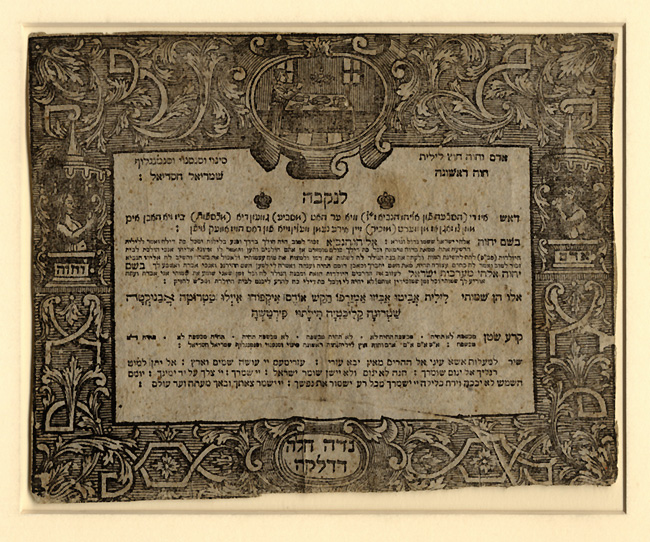Bizarre
- Lepic, Ce qui Restait du Puissant Guillaume de Naillac
- Claeaz, Dancers with Death
- Anonymous American, A Naked Man and Horse
- Klinger, Amor, Tod und Jenseits (Love, Death and the Hereafter)
- Surugue, La Folie pare la Décrépitude
- Legros, La Légende du Bonhomme Misère : La Mort dans le Poirier
- Rops, L’Enlèvement
- Sadeler, Allegory of Opulence, Fornication and Stupidity
- Mohlitz, La Vierge aux Étrons (The Virgin of Turds)
- Legrand, Épaves de Famille (Oddballs of the Family)
- Jacquemart, L’Écurueil (sic)
- Benassit, L’Absinthe!
- de Bry, Punishment of the Mutinous Indians
- Goncourt, Le Singe au Miroir (The Monkey at the Mirror)
- Callot, Les Martyrs du Japon
- Dillon, Les Mendiants (The Beggars)
- Barberis, The Witch
- Budzinski, The Thirsty Giant
- Meryon, Le Ministère de la Marine
- Torre-Bueno, Death’s Arrival
- van Meurs, Animals of America
- Redon, Félinerie
- Chagall, Le Vixe
- Martin, Indécision (Tête de Femme)
- Rops, Le Calvaire
- Rops, Les Frères de la Bonne Trogne
- Gillray, Tentanda via est qua ve quoque possim Tollere humo
- Underwood, Simian Ecstasy
- Veber, Beheaded!
- Strang, Death and the Ploughman’s Wife: Frontispiece
- Corman, The Temptation of Saint Anthony
- Bliss, Gargoyles Spouting
- Castellón, Of Land and Sea
- Eichenberg, Isaiah 11
- Rops, L’Idole (The Idol)
- Master MZ, Aristotle and Phyllis
- Bracquemond, “Hors de mon soleil, canailles!"
- Spare, Nemesis
- Higgens, Forgotten
- Anonymous, Jewish Amulet to Protect Mother and Child
- Daumier, Une Expérience Qui Réussit Trop Bien
- Seligmann, Le Roi du Charbon (King Charcoal)
- Braun, The Release of Force
- Callot, Le Grand Rocher
- Forest, Bâstard Foetus Hérédité, Comte D’Averton Mort-Né
- Jacque, La Souricière
- Veber, “Ah! Qu’il fait chaud"
- Pastelot, Les Sorcières
- Lepic, Le Verger du Roi Louis (The Orchard of King Louis)
- Grandville, Résurrection de la Censure
- Tidemann, The Earth Swallows Up the People of Korah
- Shields, The Descent
- Redon, C’est le diable
- Sadeler, Ita Erit et Aventus Filii Hominis
| 40. Anonymous German or East European (?) 18th Century (?) Jewish Amulet to Protect Mother and Child During Childbirth Against Lilith |
(click on image to print)

Jewish Amulet to Protect Mother and Child During Childbirth Against Lilith
Woodcut, 18th Century (?), 155 x 192 mm. A good impression on old laid paper, trimmed just outside the borderline, unevenly within it at the bottom; a printer’s crease and a wormhole. If the image here does not appear to be quite so bizarre, the context certainly is. Lilith as a demon and as the first wife of Adam, created contemporaneously with him and from the same clay, is a scantily documented legend that goes back to the Dead Sea Scrolls and perhaps before. It finds its most complete documentation in the medieval Alphabet of Ben Sira (8th-10th century), where amulets against Lilith’s preying upon new-born boys, before their circumcision, are described. The names of three angels, potent against Lilith, are mentioned – Senoy, Sansenoy and Semangelof – and those three names are inscribed in this print, in abbreviated forms: Snvi, Snsnvi, Smnglf. Such an amulet would have been attached to the wall or door of the birthroom to protect the occupants. The image at the top of the print shows, unexplainedly, a blessing over food. The rest is ornamental work and text, apart from the male and female figures, the former representing Adam and the latter presumably Eve. Despite the Hebrew typography, we have been informed that the text is not in Hebrew, nor in Yiddish, but in a medieval form of German. Rare, need it be said?
| $3,500.00 |